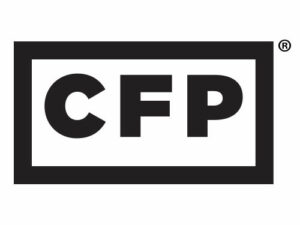By Bryan Trugman, CFPⓇ
As a small business owner, your business is likely your pride and joy, consuming much of your time and energy. Your dedication fuels the U.S. economy, and we truly appreciate the impact you’re making through your commitment.
Being part of the community of over 30 million U.S. small businesses, we understand the challenges of building, managing, and growing your company. While you’ve contributed to creating nearly two-thirds of net new jobs since 1995, you might have unintentionally overlooked your own financial well-being. In this article, we highlight the top 5 retirement mistakes small business owners often make and provide tips on how to avoid them.
1. Neglecting Personal/Family Retirement & Financial Planning
It’s easy for business owners to overlook their personal financial well-being—especially for an event that seems far away, like retirement. When you have a full plate with your business and other aspects of your life vying for attention, your retirement planning may take a back seat. However, neglecting your retirement plan could have serious consequences.
The longer you wait to develop a retirement plan, the greater the risk of not retiring on your terms. People say, “Time is money,” and it is also a helpful resource when planning for distant goals. The inverse is true too; the lack of time can be a challenge difficult to overcome. As a business owner, it’s important to have clarity regarding what you want retirement to look like for you, so you can start building a plan to pursue it.
Will you continue running your business? Are you planning to pass it on to your children or grandchildren? Or do you plan to sell it and retire with the sale proceeds? What sale price would be enough to fund your retirement lifestyle?
With a skilled financial advisor, you can take the first steps toward establishing a comprehensive retirement plan that satisfies the needs of your business finances, your family finances, and your personal retirement planning.
2. Not Having a Business Succession Plan
You’ve poured your heart and soul (as well as many valuable years of your life) into building a successful business. Setting a business succession plan outlines essential details regarding:
- Business continuity
- Leadership succession
- Ownership transitions
- Who will buy the business and how will they fund the purchase?
If anything happens to you, or even your employees, there should be a clear plan of action that helps maintain the longevity and success of your business.
Another key component of a business succession plan often includes buy–sell agreements and key man life insurance. A buy–sell agreement outlines the process of buying out a deceased or departing owner’s share of the business. Key man life insurance supplements the business with financial support in case a key employee or owner passes away unexpectedly.
Without these succession planning components, your business could experience immense uncertainty if anything happens to you or another owner.
3. Not Choosing the Right Entity Structure and Business Insurance
Selecting the appropriate entity structure for your business, such as an S corporation or C corporation, has significant tax and liability implications. The choice can impact your personal liability, taxation, and even your ability to raise capital.
To choose the most advantageous business structure for your business, it’s important to research your options thoroughly; consult with your tax and legal advisors for an informed decision that aligns with your business goals.
Additionally, business insurance is non-negotiable. Proper entity structure may prevent liabilities arising from your business, and it is important to safeguard the assets of the business. An appropriate level of business insurance shields your business from unexpected events, such as lawsuits, property damage, or employee injuries.
Investing in the right insurance coverage safeguards your business’s financial stability. A property and casualty insurance agent can help you assess your insurance coverage and identify any gaps.
4. Inadequate Employee Benefit Structures
If you were one of the businesses affected by recent labor shortages, you know how crucial it is to attract and keep a dedicated team. Offering employee benefits like these helps your business remain competitive in the labor market:
- Retirement plans
- Health insurance
- Dental and vision
- Other perks
Without structured employee benefits, your business could experience higher turnover or face a lack of applicants for open positions.
At Attitude Financial Advisors, we work with experts in benefits who can help you take care of your employees by working with you to design a comprehensive benefits package aligned with your business’s financial capacity and employee needs.
5. Neglecting Investment Diversification
Over-relying on your business’s success to provide financial stability could backfire if the market shifts or the business faces a dip in profitability. Diversifying your investment portfolio beyond your business can help reduce the risk of putting all your eggs in one basket.
If there is a problem in the business, it is likely you will be called upon to fix it. The fix may mean changing how you do business, but it may also mean more capital—so you need to be prepared.
It is smart to build a nest egg outside of your business. Construct a stable investment portfolio that has a mix of securities, such as:
- Stocks
- Bonds
- Real estate
- Exchange-traded funds (ETFs)
- Mutual funds
It’s important to diversify based on industry as well. For example, if your investment portfolio is made up only of stocks in the technology sector, a disruption in that industry could result in a larger negative impact on your investments.
During periods of economic downturn, the right diversification strategy could cushion potential blows to your portfolio and minimize losses.
A Trusted Guide by Your Side
At Attitude Financial Advisors, we understand the daily challenges and responsibilities business owners like you face. You have a deep understanding of your business, and you deserve a financial partner with the experience to support your financial goals.
As a CERTIFIED FINANCIAL PLANNER® professional, I’ve helped business owners avoid common financial mistakes by creating customized plans that align both personal and business needs. If you’re ready to set your small business on the path to financial success, reach out to me via email at btrugman@attitudefinancial.com or give me a call at (516) 762-7603 to set up a free consultation. I look forward to connecting with you!
About Bryan
Bryan Trugman is managing partner, co-founder, and a CERTIFIED FINANCIAL PLANNER® practitioner at Attitude Financial Advisors. With more than 16 years of experience, Bryan specializes in addressing the financial needs of new parents as they seek to realign their finances, assisting divorced individuals as they navigate an unforeseen fork in the road, and strategizing with those seeking to accrue a dependable retirement nest egg. Bryan is known for being a good listener and building strong relationships with his clients so he can help them develop a customized financial plan based on what’s important to them. He is passionate about helping his clients experience financial confidence so they can worry less and play more. Bryan has a bachelor’s degree in industrial and systems engineering with a minor in mathematics from State University of New York at Binghamton. He has served on the board of the Financial Planning Association and continues to be actively involved in the national organization. He is also a member of the Plainview-Old Bethpage Chamber of Commerce and has served as its vice president and as a board member. When he’s not working, you can find Bryan on the ballroom dance floor or engaged in a fast-paced game of doubles on the tennis court. To learn more about Bryan, connect with him on LinkedIn. Or, watch his latest webinar on: How Much Is Enough? A Surprisingly Simple Way to Calculate Your Retirement Savings Needs.



